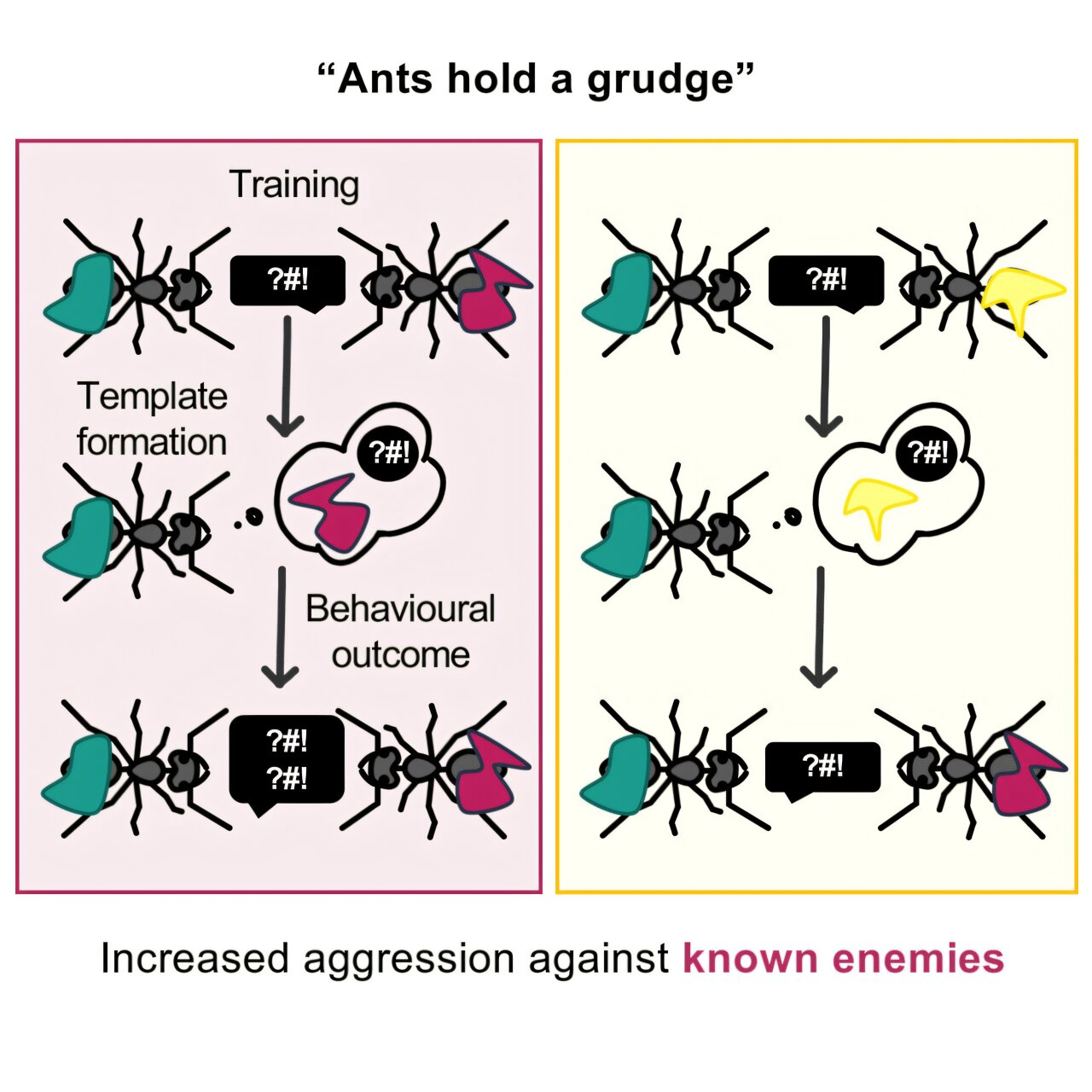Ants remember their encounters with individuals from another nest and treat every member of that nest accordingly. Although this demonstrates remarkable capacity given their tiny brains, it may also explain why ants are one of the few species besides humans that fight extended wars.
Ants recognize members of their own nests through scent, and treat them differently from those from other nests, often waging fierce battles against neighboring nests driven by competition for food. Like all wars, this comes at a cost to both sides, and can serve as a natural control mechanism. There are exceptions, however. One of the reasons fire ants have proven so globally invasive is that they form supercolonies, with ants from neighboring nests uniting to suppress other species rather than wasting energy fighting each other.
Past studies have shown ants are more aggressive to members of nearby nests than those that are more distant, and a team of scientists led by Dr Volker Nehring of the University of Freiburg set out to investigate why.
They prepped a sample of black garden ants (Lasius niger) by causing some to meet members of their own nest, and some to encounter representatives of one of two rival nests. The encounters were brief but were repeated daily for five days, and acts of aggression such as biting, spraying acid, or opening their mandibles as a threat toward non-nestmates increased over that time.
All three subgroups of ants were then made to encounter ants from nest A, one of the two rival nests. Those ants that had prior experience with nest A ants were more likely to show aggression at this point than those who had only met their fellow nestmates, or those who had encountered ants from nest B. Being primed by encounters with nest B ants didn’t make for more aggression against nest A than only meeting members of the ant’s home colony.
Simply meeting an ant from another colony was not enough to trigger aggression. When ants from foreign nests were made less able to fight, the test ants were less aggressive to members of that nest, even those who were fully equipped, than they were to members of colonies they had not encountered before.

Ants get aggressive with ants from another nest where they have previously had bad interactions, but not where there is no history.
There are definite evolutionary benefits. When ants frequently encounter individuals from another nest, it indicates they are likely to be in competition for food. However, when encounters are rare, it suggests competition is limited, either because of geography or from depending on different food supplies. In such cases, there’s no reason to start a conflict that will harm both sides.
However, prior to this work, the mechanism was not clear. The study indicates that ants remember the distinctive nest smell of the ants they encounter. “We often have the idea that insects function like pre-programmed robots,” Nehring said in a statement. “Our study provides new evidence that, on the contrary, ants also learn from their experiences and can hold a grudge.”
We can see the echoes of this so-called “nasty neighbor effect” among humans. A frequently bemoaned trait is the way people tend to turn on those that are closest to them, for example engaging in bitter conflicts over minor political or theological differences, rather than uniting against a more distant foe. Life of Brian became a cultural touchpoint by satirizing this so well. Game of Thrones captured it more realistically, despite the magical context, when many players preferred to fight their neighbors than an enemy that would bring death to all.
However, humans are not ants, and we’re sometimes able to assess threats more rationally. Understanding the evolutionary drivers may help us work out how to do that more often, although the answer is unlikely to be as simple as dousing a frenemy in perfume so as not to trigger a smell memory.
The experiments with ants rendered passive also show that, theoretically, two colonies might live side by side in harmony. Then one individual acts aggressively enough to spark a reaction from members of the other, setting off a vicious circle that leads to all-out war. Judge for yourself if there are any human parallels there.
The study is open access in Biology Letters.
Source Link: Don't Cross Ants – They Remember Their Enemies And Hold Grudges